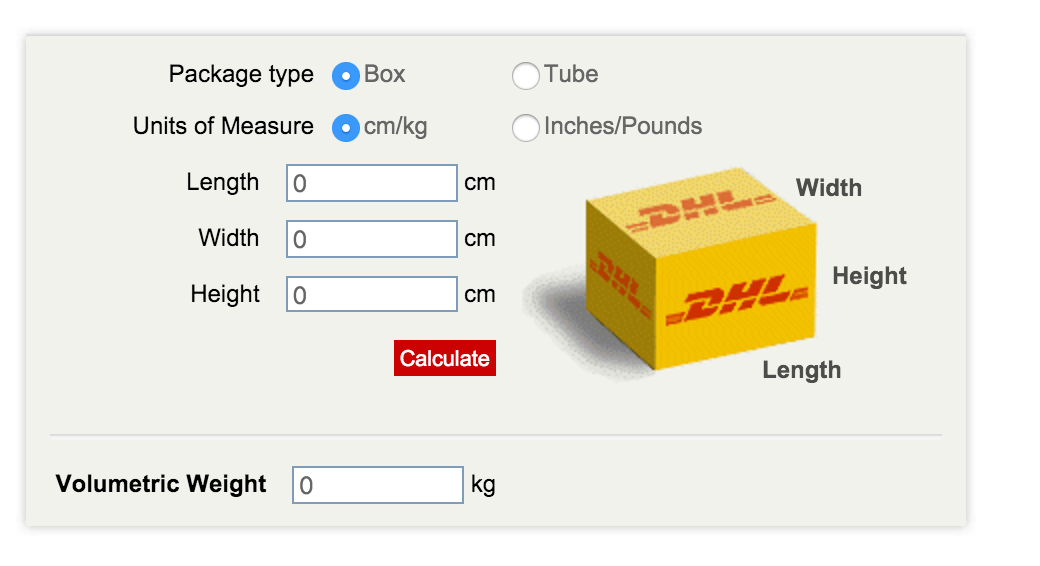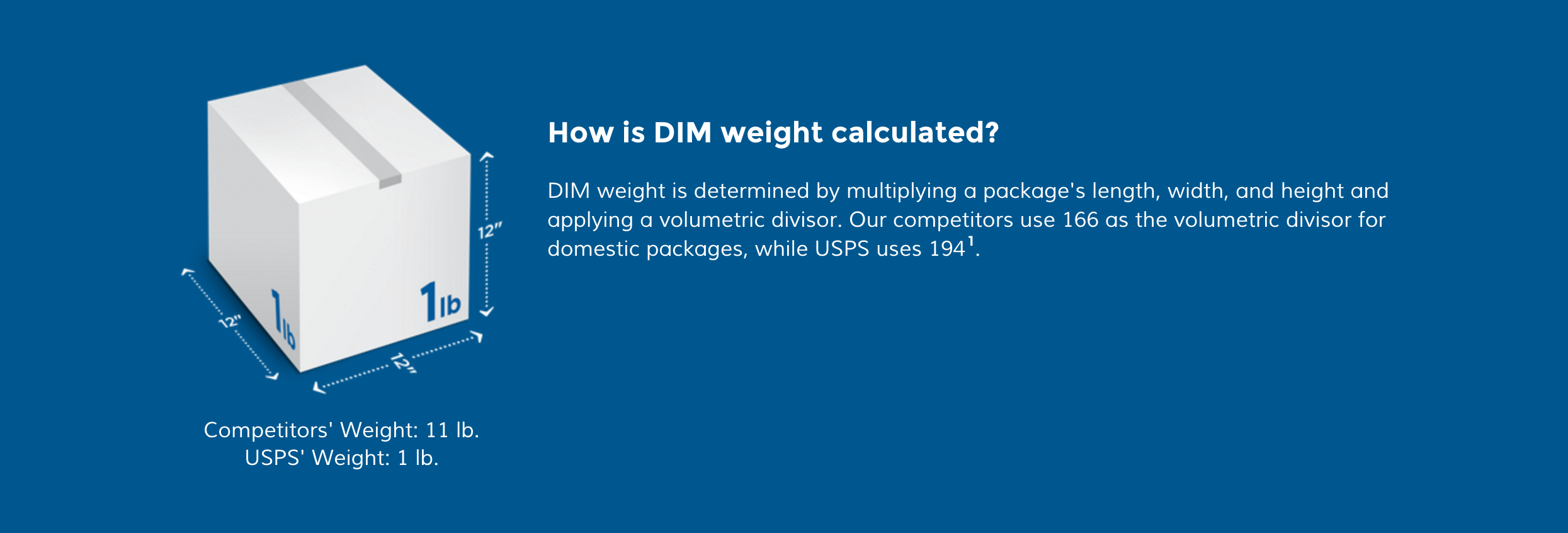How to calculate volumetric or dimentional weight

What is volumetric weight

Volumetric weight is also called dimensional weight, which is calculated from length, width and height with a volumetric divisor. Each courier can have a different volumetric divisor for calculating volumetric weight. Below you can find the volumetric weight formula or also called dim weight factor.
What is volumetric weight calculation formula
Each courier may have a different volumetric weight calculation, below are the formula FedEx and UPS calculate volumetric weight for international and US domestic shipments. DHL is also using the same formula for international shipments as FedEx and UPS as well.
- DHL Volumetric Weight Calculator
- FedEx Volumetric Weight Calculator
- UPS Volumetric Weight Calculator
- USPS Volumetric Weight Calculator
FedEx and UPS Volumetric weight calculation formula
| Type | Volumetric Weight in CM/KG | Volumetric Weight in IN/LB | International | L * W * H / 5000 = KG | L * W * H / 139 = LB |
| Domestic | L * W * H / 6000 = KG | L * W * H / 166 = LB |
Why volumetric weight
Couriers calculate the shipping rate with the billable weight which is the greater of the volumetric weight compared to the actual weight. Comparing volumetric weight vs actual weight is to ensure courier to charge fairly for users shipping a large but very light item, which ends up taking a lot of aircraft space - and same for a very heavy but small item.
"It is necessary for DHL Express to adapt a new computation in order to make efficient use of cargo space and to avoid over-bulking." - DHL
How to avoid high volumetric weight
Since couriers start to introduce volumetric weight, merchants try to minimize the volumetric weight by reducing any wasted space in their packages. For 3rd party logistics service provider that help merchants to manage the shipments, they offer re-packaging service, e.g. removing the original box and pack with a box that fully utilize the space.
Another solution is to use an alternative service like USPS. Compared to FedEx or UPS using 166 as volumetric divisor, USPS use 194.

